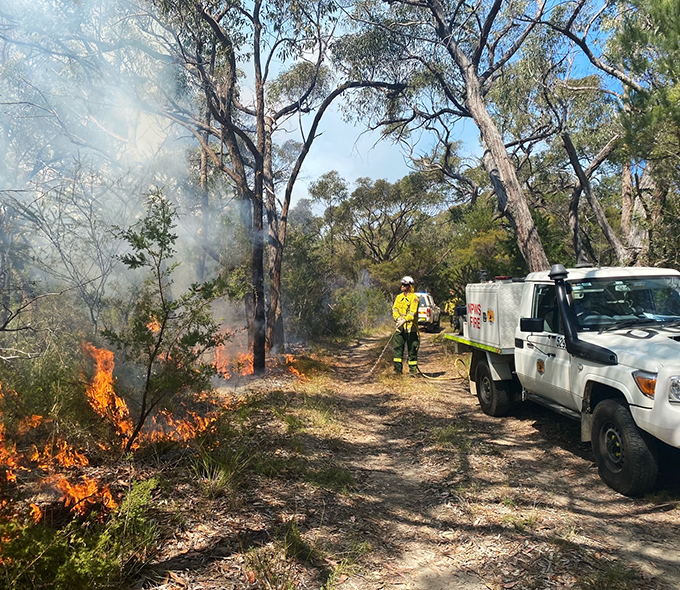Hazard reduction burn in Queens Lake Nature Reserve
The National Parks and Wildlife Service (NPWS) is planning a hazard reduction burn in Queens Lake Nature Reserve, south of Port Macquarie, this Thursday 14 September 2024.
The 70 hectares burn is adjacent to Queens Lake Picnic area, Queens Lake Road, Bobs Creek Fire Trail, Ridge Trail, Dump Trail and Sheoak Trail.
The area will be closed during the operations, from 7 am Thursday 14 March 2024 until 7 am Thursday 21 March 2024. It will be reopened once assessed as safe.
The aim of the burn is to improve protection by limiting the spread of bushfire within Queens Lake Nature Reserve and to promote biodiversity by maintaining appropriate fire regimes across the reserve system.
Smoke will be visible from North Haven, West Haven, Laurieton and Dunbogan and may affect the area and people with asthma or other respiratory problems are advised to keep clear of the area or stay indoors, close windows and doors, and follow their health plan.
People with known health conditions should sign up to get air quality reports, forecasts and alerts via email or SMS and check the RFS website for advice and for regular updates on planned burns.
The NPWS conducts controlled burns for a range of purposes, including asset protection, strategic fire control, maintenance of biodiversity and research.
The NPWS hazard reduction program for 2024 is focused on essential burns to protect both park neighbours, assets and park values.
This burn is one of many hazard reduction operations undertaken by NPWS across New South Wales each year, many with assistance from the Rural Fire Service and Fire and Rescue NSW.
These hazard reduction burns are essential to reduce bushfire fuel loads to help protect the parks, neighbours and communities from summer bushfires.
More information on hazard reduction activities is available at: NSW Rural Fire Service and the NSW Government Hazards Near Me website and app.
For health information relating to smoke from bush fires and hazard reduction burning, visit the NSW Health website or Asthma Australia.
